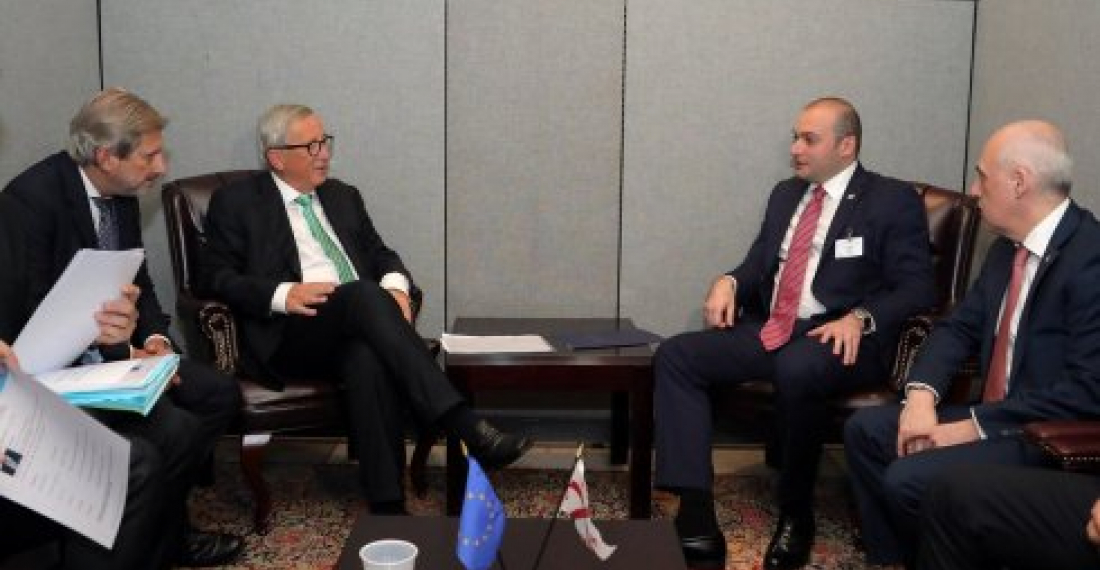Председатель Еврокомиссиии Жан-Клод Юнкер во вторник (25 сентября) в преддверии заседания Генеральной Ассамблеи ООН в Нью-Йорке встретился с премьер-министром Грузии Мамукой Бахтадзе.
Согласно Agenda.ge, информ-сайт грузинского правительства, Юнкер положительно оценил прогресс, достигнутый Грузией на пути к интеграции в ЕС и те демократические, экономические и политические реформы, которые проводит Грузия.
Agenda.ge сообщает, что Жан-Клод Юнкер высоко оценил инициативу правительства Грузии «Шаг к лучшему будущему» и еще раз подтвердил поддержку ЕС территориальной целостности Грузии.
Мамука Бахтадзе и Жан-Клод Юнкер также обсудили предстоящую первую встречу в новом формате, диалога между ЕС и Грузией. Встреча состоится в Брюсселе и вогзглавят ее премьер-министр Бахтадзе и Жан-Клод Юнкер.
Позднее премьер-министр Грузии написал в своем Твиттере:
"Сегодня после церемонии открытия Генеральной Ассамблеи ООН я встретился с президентом Жан-Клод Юнкером. Мы обсудили отношения между Грузией и ЕС, а также ту важность, которую имеет деятельность Комиссии в Грузии. Ключевые темы: Образование и интеграция в ЕС.
источник: commonspace.eu по материалам Agenda.ge







